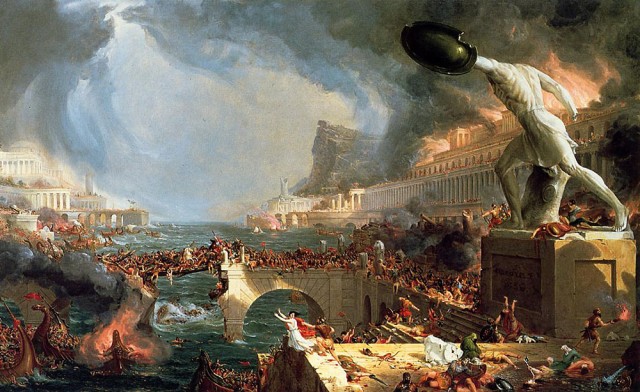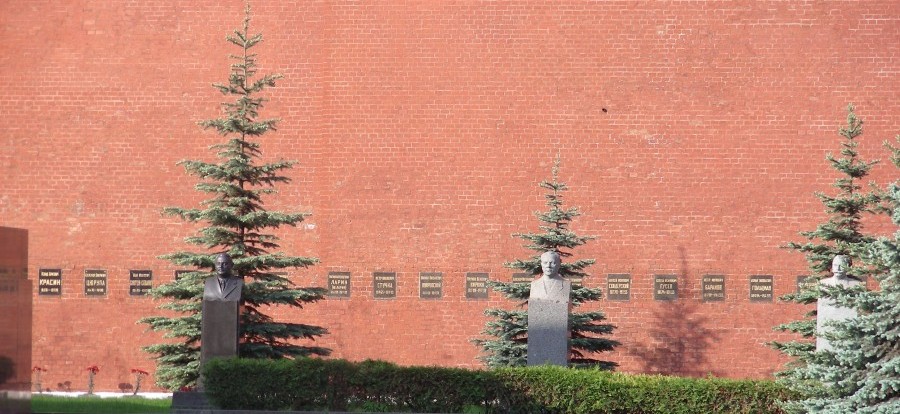Whenever people are confronted by changes that call into question existing paradigms, their first reaction typically is to deny that anything has happened or that it is significant, but their second is to seek analogies and parallels in the past as guides to understanding.
In recent weeks, the murder of Boris Nemtsov, Moscow’s increasing flirtation with fascist groups abroad, and continuing troubles in its imperial borderlands, have intensified this search for analogies, and the parallels they suggest can promote a new empiricism, one that combines the insights the analogies provide and the current facts on the ground.
Three analogies suggested this week may prove especially fruitful in that regard.
Vadim Shtepa, one of Russia’s most important regionalists, points out that the murder of Boris Nemtsov “gave rise in society to numerous historical analogies, at times extremely exotic ones.” It has been compared to the murders of Rasputin, Kirov and the Italian anti-fascist Giacomo Matteotti.”
But, as Shtepa points out, few have drawn “the more obvious parallel” between the political fates of Boris Nemtsov and Lev Trotsky, two figures who helped make the revolution, then were cast aside by other forces, and finally murdered by the victors in that struggle – and they have failed to do so even though that parallel was suggested already eight years ago.
In 2007, he recalls, Aleksandr Melikhov, a St. Petersburg writer, drew that analogy in extremely suggestive ways. “Both Nemtsov and Trotsky had unusual capacities for exact science, but both gave those up for the political struggle. Both rose to the heights of the second person in the state, and both were thrown down from these heights.”
Moreover, Melikhov pointed out, both wrote books “about the causes of their rise and fall,” yet another thing that links the two together despite their complete ideological divide: “if Trotsky was a flaming communist, then Nemtsov on the contrary was a radical anti-communist liberal.”
If one substitutes the words “democracy and reform” for “communism and revolution” and Yeltsin for Lenin, the St. Petersburg writer said, the parallels become even more obvious. “During the last years of Lenin’s life, Trotsky was viewed by many as his natural ‘successor,’ and he himself supposed himself to be exactly that.”
Similarly, Boris Yeltsin between 1994 and 1998, “sometimes as a joke and sometimes in all seriousness,” called Nemtsov his “’successor,’” apparently because he viewed “the young Nizhny Novgorod governor and later Russian vice prime minister” as someone capable of continuing what he had begun.
Like Trotsky, Melikhov argued, Nemtsov saw himself exactly in that way and thus failed to notice that others around Yeltsin had won a political struggle for the future that Nemtsov himself had never felt he had to take part in. As a result, Nemtsov’s rating, like that of Trotsky in the 1920s, fell, and Yeltsin had to turn to someone else.
Just as Trotsky’s revolutionary idealism was out of step and in fact a threat to the party bosses Stalin had assembled into his machine, Shtepa says, so too Nemtsov’s democratic idealism was out of step and in fact a threat to the oligarchs, siloviki and security service officers that Vladimir Putin ultimately assembled around himself.
And consequently, just as Trotsky was forced out of the Moscow political elite and finally murdered by Stalin’s agents in Mexico, so too Nemtsov was driven out of the center of Russian officialdom and ultimately murdered by those who viewed what he represented as a threat to their power.
Such parallels, the Russian regionalist says, are simply too powerful to ignore, and their consequences obviously extend far behind the murders of two individuals and point to the fate of the countries over whose futures they fought.
Yevgeny Ikhlov also offers an analogy this time between Putinism and Hitlerism not just as a reaction to the assemblage of European fascists in St. Petersburg but with a look back to Andranik Migranyan’s suggestion year ago that there was “a good Hitler” before the Nazi leader attacked Poland and became “the bad Hitler.”
There are two signs, the Moscow commentator says, which suggest parallels between “the late Putin and the early Hitler:” their opposition to all international groupings which might restrict their activities and their attraction of fanatical supporters abroad among those who share many of their ideas.
On the one hand, Ikhlov writes, Putin’s struggle with the European Union, one that involves a mix of carrots and sticks, including most recently his nuclear threats against Denmark “almost point by point copy the policy of Berlin in the 1930s against the League of Nations and the system of alliances France made with the countries of Eastern Europe.”
And on the other, he argues that “Putin is the first ruler after Stalin and Hitler who has in Europe a significant number of political deifiers,” people and movements looking for someone to lead them. What happened in St. Petersburg over the weekend, Ikhlov says, “yet again showed that mentally, the Putin regime firmly occupies the place of ‘pre-Poland’ Germany.”
There is no question, he says, that this will have additional consequences in the future. And although Ikhlov doesn’t, Dozhd TV pointed out that the Putin regime has now decided there are two categories of fascists: those who support Putin are “good;” those who don’t are “bad.”
The third set of these analogies is drawn by Kyamran Agayev, who argues that “Russia but not Ukraine is repeating the fate of the Ottoman Empire” and that “the Kremlin ‘sultan’” is surrounded by “his political ‘eunuchs,’” much as the Ottoman sultan was several centuries ago.
Many Russian commentators have suggested that Ukraine today is “the sick man of Europe” just as many Europeans described the Ottoman Empire in the 19th century, suggestions that carry with the implication that Ukraine will eventually fall apart regardless of how much the West tries to prop it up.
But if one considers the issue from a more scientific and historical approach, Agayev says, it becomes clear that it is not Ukraine that is similar to the Ottoman state but rather “Putin’s Russia,” especially if one recalls that “the main reasons” for the former’s collapse was the unwillingness of the sultan to carry out reforms, his reliance on reactionary values, and his challenging behavior to “the leading European states” of the day.
Others have considered this analogy as well, and for an especially thoughtful discussion of it, see the recent article by and interview with Rein Taagepera at UT.blog and World Affairs.



